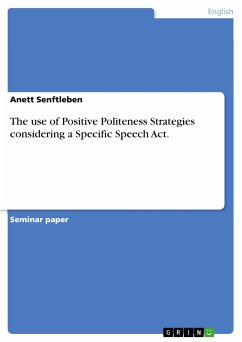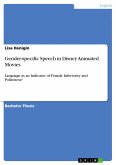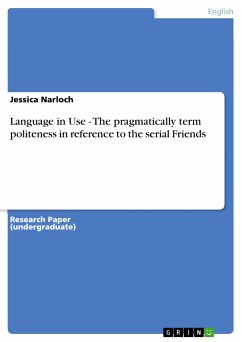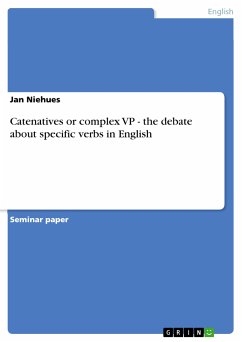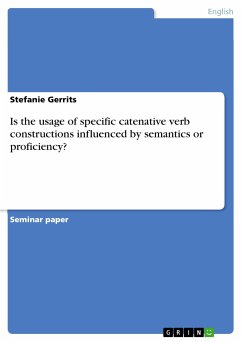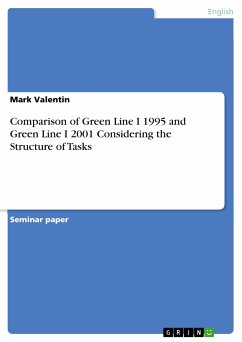Seminar paper from the year 2005 in the subject English Language and Literature Studies - Linguistics, grade: 2, University of Rostock (Institut für Anglistik & Amerikanistik), course: Linguistic Politeness, language: English, abstract: Positive politeness strategies are based on Brown and Levinson’s theory about politeness in general. They distinguish between two kinds of politeness – positive and negative politeness. Even though their theory about speech acts has been developed in 1978, it does not seem to be outdated. Brown and Levinson are still the leading linguists in the field of politeness who explain which positive politeness strategies people follow during speech acts. The strategies of positive politeness not only apply to speech, to spoken language and recorded speech; but also to written texts. There seems to be a difference in use of positive politeness strategies in written texts and speech act. Various problems occurred while working on the paper. First, it was very difficult to find an interview, which could be downloaded from the internet. Secondly, this interview had to be interesting enough to make it pleasurable to work on. And lastly, it was necessary to find an interview which can be used throughout this paper as an example to illustrate all 15 strategies of positive politeness. This seemed to be the most substantial problem. It is almost impossible to find an interview, which follows all 15 strategies. I assume that not all 15 strategies of positive politeness had been used during the interview. This paper will deal with documentary of the British rock band Coldplay. It was recorded from the BBC homepage, where you find links to British radio stations, and I edited the interview by cutting out musical interludes. The talk was broadcasted on Radio 1 in the Steve Lamacq’s show “Bigger, Stronger - Coldplay's early days”1. Even though I contacted Radio 1, I was not able to find out the exact date when the interview was broadcasted.

